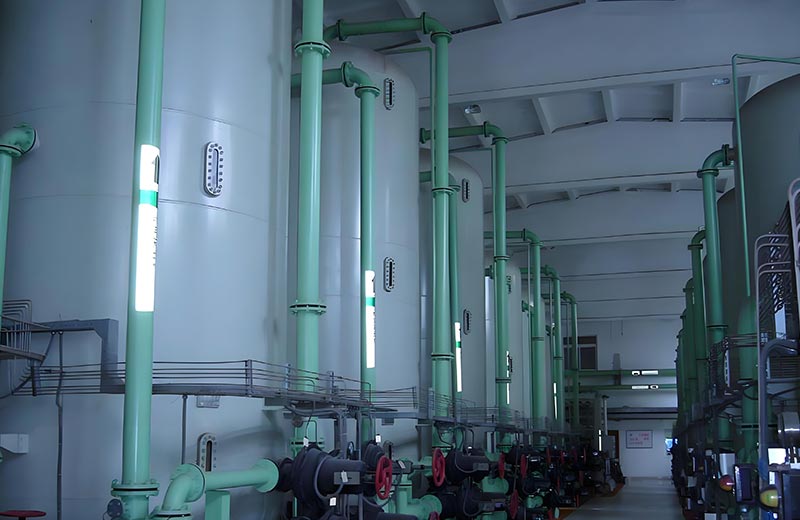The quality of boiler water is one of the key factors affecting boiler performance and service life.Through regular testing and analysis of boiler water quality, water quality problems can be detected in a timely manner, and corresponding treatment measures can be taken to ensure that the boiler water quality is within the normal range, thereby extending the service life of the boiler and reducing energy consumption and maintenance costs.This article will detail the standards and methods of boiler water quality testing to help you understand this important aspect.

Boiler water quality testing standards are mainly based on relevant national standards and industry norms.The main indicators of boiler water quality include the following:
Hardness: Hardness is a measure of the content of calcium and magnesium ions in water. Excessive hardness will lead to boiler scaling, affecting the efficiency of heat transfer, and in serious cases, may even cause boiler explosion. Therefore, the hardness of boiler water must be controlled within a certain range.
pH: pH is a measure of the acidity or alkalinity of water. National standards state that the pH of boiler water should be controlled between 7.0-10.5. If the pH value is too high or too low, it will corrode the boiler equipment and affect the safe operation of the boiler.
Suspended matter: Suspended matter is solid matter in water with particles larger than 0.1mm. If the content of suspended solids in boiler water is too high, it will form deposits in the boiler, affecting heat transfer efficiency and even causing boiler corrosion.
Dissolved Oxygen: Dissolved oxygen is the amount of oxygen dissolved in water. Excessive dissolved oxygen will accelerate the corrosion of boiler equipment, so dissolved oxygen needs to be assayed and controlled.
Chloride and sulfate ions: Chloride and sulfate ions are common ions in boiler water, and excessive amounts can cause corrosion and scaling problems in the boiler.
Dissolved solids: Dissolved solids refer to the total concentration of dissolved organic and inorganic matter in the water, too much of which can cause corrosion and scaling problems in the boiler.
Conductivity: Conductivity reflects the ability of ions in water to conduct electricity and is closely related to salt content. By determining the conductivity, the ion content of the water can be understood.
Oil: Oil will adhere to the boiler tube walls, affecting heat transfer efficiency and even causing fires.
Iron and Copper: Excessive levels of iron and copper ions can lead to corrosion problems.
Phosphate: Phosphate combines with calcium and magnesium ions to form a soluble salt, thus preventing scale formation.
The methods of boiler water quality testing vary depending on the test items and requirements, and include the following:
Hardness test: Hardness tests are usually performed by titration.First take a certain amount of water samples, add appropriate amount of ammonium chloride buffer solution and chromium black T indicator, titration with EDTA standard solution until the solution from burgundy to blue, that is, the end point of titration.The hardness of the water sample was calculated from the volume of EDTA standard solution consumed.
pH assay: pH assay is usually carried out using the glass electrode method.Put the glass electrode and reference electrode into the water sample, read the potential value, and then check the corresponding pH value according to the standard curve.If the potentiometric value cannot find a corresponding pH value in the standard curve, a correction is required.
Suspended matter assay:Suspended matter assays are usually performed using the gravimetric method. A certain amount of water sample is poured into a weighing bottle, dried in a constant temperature oven to a constant weight, then the bottle is removed, capped and cooled, and finally the weight of the residue in the bottle is weighed with a balance to calculate the suspended matter content of the water sample.
Dissolved oxygen assay:Dissolved oxygen assays are usually performed using the iodometric method.A quantity of water sample is added to a known mass of potassium iodide solution,Close the plug and shake well, let stand in the dark for 5 minutes, then add appropriate amount of dilute sulfuric acid, shake well and immediately titrate with sodium thiosulfate standard solution until the solution is light yellow when adding starch indicator,Continue the titration until the blue color disappears as the end point of the titration.The dissolved oxygen content of the water sample was calculated from the volume of standard sodium thiosulfate solution consumed.
Chloride and sulfate ion assays:Chloride and sulfate ions can be assayed by methods such as ion-selective electrode methods or chromatography.
Dissolved solids assay:Assays for dissolved solids can be performed by methods such as gravimetric or conductivity methods.
Conductivity assay:Conductivity assays are usually performed using the potassium chloride electrode method. The electrode is placed into the water sample, the conductivity value is read, and then the conductivity of the water sample is calculated from a standard curve or formula.
Oil assay:The assay of oil can be carried out using methods such as spectrophotometry.
Iron and copper assays:Assays for iron and copper can be performed by methods such as spectrophotometry or atomic absorption spectrophotometry.
Phosphate assay:Phosphate assays can be performed by methods such as the phosphomolybdenum blue colorimetric method.
Therefore, boiler water quality tests and boiler water quality testers are particularly important. We hope that this article can help readers gain a deeper understanding of the standards and methods of boiler water quality testing, and provide a strong guarantee for the safe operation of the boiler and energy efficient.